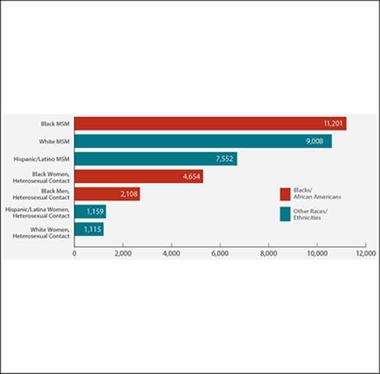It’s also the month of love

by Mary Turner
HIV/AIDS Columnist
February. It’s that glorious month that the U.S. sets aside to honor African American history. It’s also the shortest month of the year.
I personally find the idea of any “history” month to be insulting. After all, we are all people every day of the year, but this article isn’t about creating a just world. It is, however, about some of the threats to health and well-being that many African Americans face every day.
Members of other racial/ethnic groups and the LGBTQ community face these threats as well, but it’s February, so my focus is on black people. Especially black people who are members of the LGBTQ community, too.
Even though we’re well into the twenty-first century, racism is thriving in America. Obviously, overtly violent offenses against blacks negatively impact the lives of those directly affected as well as those impacted vicariously.
Research indicates that at least one in 10 black persons suffers traumatic racist experiences that lead to Post Traumatic Stress Disorder (PTSD). These experiences include such things as name-calling, having people refuse to sit next to them on public transportation, being followed by employees in retail stores, and other non-lethal daily occurrences.
Additionally, black men are bombarded by messages of hyper-masculinity, the need to be “bigger and badder” and more dangerous as a male in order to compensate for being excluded from the social power structure. This not only leads to an increased likelihood that young men of color will engage in risky behaviors that threaten their own health and well-being, but that they will also pose a threat to black women whom they may subjugate and objectify as they try to live out an unhealthy and unreasonable standard of masculinity.
Phrases such as “Man up”, “Good guys finish last” and “Boys don’t cry” punctuate the predominant culture’s attempt to restrict a male’s expression of emotion and turn him into a diabolical creature.
Then, too, there is the persistent non-acceptance of alternative sexual orientations within the African American community. If you’re a black man attracted to other men, then you’re ‘not really’ a man. You don’t fit the image that has been carefully woven into the fabric of systemic racism built on slavery centuries ago.
These threats work together to yield one of the biggest threats to the health of black men: HIV. Statistics from the Centers for Disease Control (CDC) in 2014 show 44 percent of new HIV infections each year are among African Americans.
Most of these cases, 57 percent, occur in gay or bisexual men. Of those individuals, 39 percent are age 13 to 24, and 14 percent don’t know they have been infected. In 2013, 54 percent of all HIV/AIDS related deaths were black men.
Guys, you can’t control whether someone in a restaurant looks at you funny or makes snide comments. You can’t control whether your dear grandmother prays that you’ll stop “all that foolishness and find a good woman.” But you can control whether you engage in risky sexual activities andwhether you get tested on a regular basis so that you can keep yourself and those you love safe and healthy.
February is also the month of love. Loving yourself makes all other kinds of love possible. Stay safe.
Copyright 2017 The Gayly – February 15, 2017 @ 11:30 a.m.





